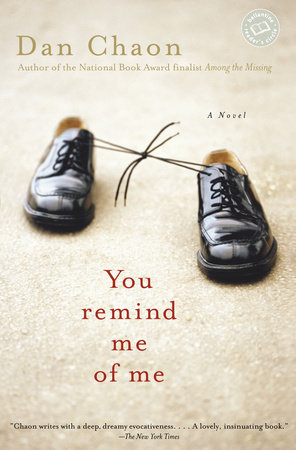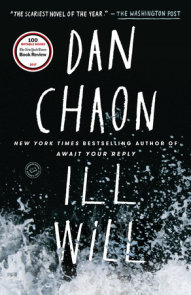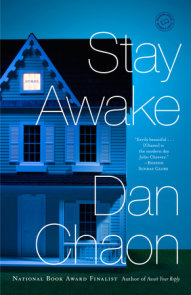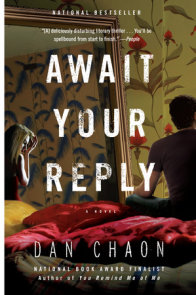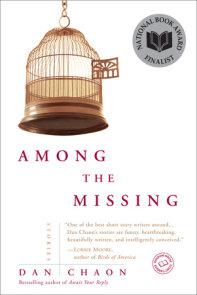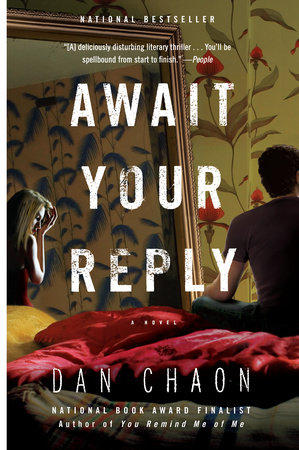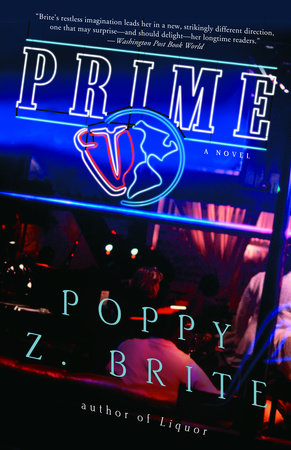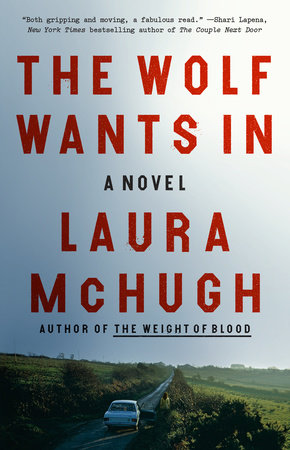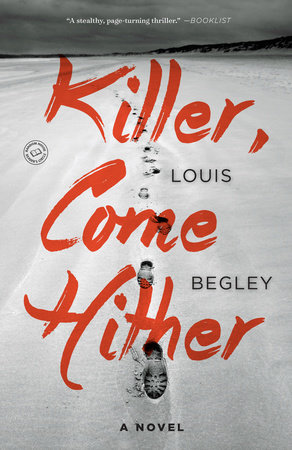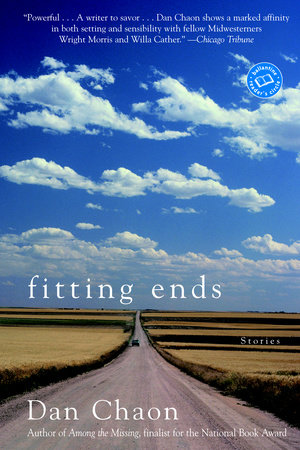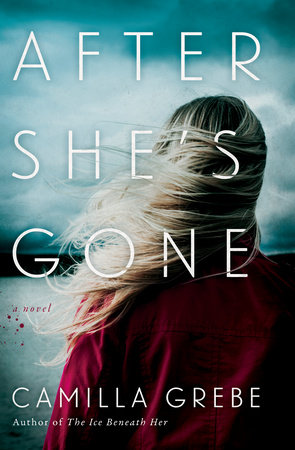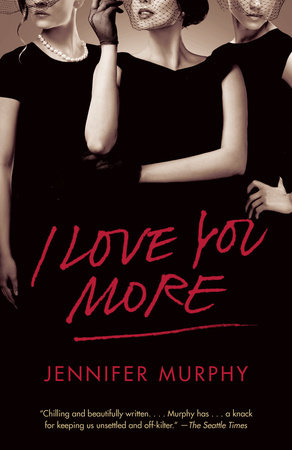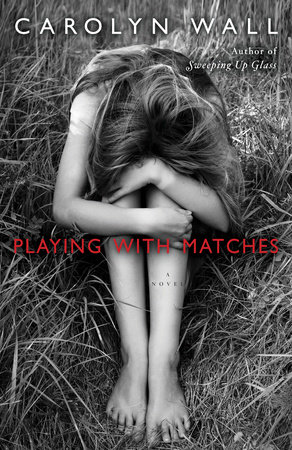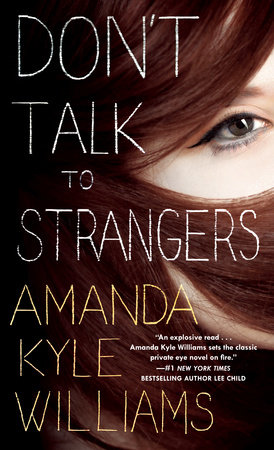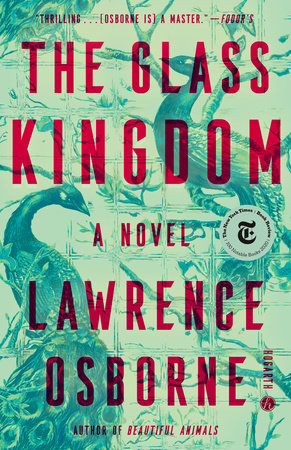Author Q&A
A Conversation With Dan Chaon
Q: This is your first novel, following two collections of short stories (Fitting Ends and Among the Missing). Was it difficult to make the transition to the longer form?
Dan Chaon: I found it very hard at first. I love the short story as an art form in its own right, and I want to continue to be a short-story writer. I am not one of those people who think that short stories are just practice ground for young writers to work their way up to writing a novel. Writing short stories is not necessarily good practice for writing a novel, because they seem to me to come from different parts of the brain. When I first began writing, I tended to be more interested in poetry. I didn’t start out thinking in terms of “narrative” and “story.” My earliest impetus for writing was simply observing the strange things I happened to notice in my everyday life, situations that struck me as compelling, anecdotes I’d heard, images, words, metaphors. A lot of the time, with stories, I’ll start out with a title and try to dream myself into the story that it evokes—a kind of subconscious exercise in which I’m trawling for some kind of entryway into narrative. As a short-story writer, I usually just start at the beginning and write through to the end. You’ll have some basic ideas—a character, or an image, or a situation that sounds compelling—and then you just feel your way around until you find the edges of your story. It’s like going into a dark room . . . you stumble around until you find the walls and then inch your way to the light switch. With a novel, on the other hand, the walls may not be there. You may be in a dark field. There may not be a light switch. You can’t stumble around blindly as easily and find your way out. You need to understand the scope and shape of the world you are writing about in a way that you don’t often have to think about in a story. But I didn’t know that at first. Going into the novel, I was pretty ignorant about the process, and I just had a kind of vague idea of a general theme I wanted to write about. I knew a few things about the situation and some aspects of the characters’ lives, but I didn’t know much else. So my first draft was a minor disaster. I couldn’t get a grip on the structure, for one thing. I tended to go off on tangents and get lost as I was writing, and I realized that the problem was that I was trying to write it as if it were a very long short story. In my mind, I had as a model the kind of short, “perfect” novel, like The Great Gatsby, which takes place in a self-contained period of time and follows a direct line of chronological action from beginning to end. But this conception didn’t work for me at all. I had too much chronological time that I was trying to cover and too many different character threads that needed to be fleshed out. The truth is that even in my stories I don’t generally think in direct lines, and what I had come up with was layer upon layer of summary, flashback, and interior monologue—a big rambling mess, with almost no scene at all. I was very lucky to have had an editor like Dan Smetanka. He was very patient and really helped me to see how to begin to restructure the material—how to think in terms of novelistic scene, rather than short-story scene, and how to begin to find an overall shape for the material.
Q: The structure of You Remind Me of Me is quite complicated, using multiple points of view and a fractured chronology. Why did you decide to write the novel in this form?
DC: I started with a more traditional structure in mind. The first draft was in first person, from Jonah’s point of view, and started at the beginning of part 2, when he arrived in St. Bonaventure. I saw the action of the book taking place over a period of three or four months. But as I was going back and trying to rewrite, one of the first things I realized was that Jonah’s perspective was so distorted that he wasn’t capable of telling big parts of the story that were interesting to me. I was curious about what Troy was thinking. And then I became interested in Nora’s side of the story. And as I started to write about these different characters, I became interested in the ways in which their lives and their viewpoints contrasted and bounced off one another, particularly because the characters had such distinctive—even contradictory—senses of reality. The other thing was, as I said, the first draft of the novel tended to be pretty heavy with summary and flashback. At the suggestion of Dan Smetanka, I began to dramatize the important events in the characters’ lives: the dog attack; Nora’s life in the maternity home; the first time Troy smoked pot. And as I began to accumulate these little dramatized scenes—each one almost like a self-contained story—I realized that my original concept of the structure wasn’t going to work. Those months that Jonah spends spying on Troy in St. Bonaventure weren’t really the only center of the action of the book. That was only one layer, and there were other times and other layers that, in my mind, were concurrent and interpenetrating—almost as if we had six or seven television sets all tuned to different stations, but each of the programs was secretly connected to the others.After I’d accumulated enough of these fragments, I ended up establishing a skeletal structure for myself to work with: The novel is made up of three parts with twelve chapters each. Once I had some of those initial chapters in place, like support columns, I saw how they could be arranged to create suspense and how they could reflect off one another in interesting way. That collage aspect was actually eventually one of the most fun parts of the book for me because it allowed me to discover interconnections between the time lines and characters that I might not have found if I’d written the book in a more straightforward chronological way.
Q: It’s surprising to hear that your conception of the novel didn’t actually begin with the dog attack. It’s hard to imagine the novel without that central opening incident—but it sounds as if the opening chapter didn’t come until somewhat late in the process of writing.
DC:Well, the idea of Jonah’s facial scars was around from the very beginning of the story. One of the first lines I wrote was, “I like for people to look at my scars.” And in early drafts there were long first-person monologues from Jonah’s point of view. He talked about the dog attack, but it was never really dramatized. I think that a big breakthrough for me was a discussion I had with Dan Smetanka about it. He was like, “This is the most compelling material you’ve written so far, and yet it’s all in flashback and summary. Why don’t you sit down and write ten pages where you dramatize the moment of that dog attack?” And when I did that, it really transformed my concept of the book and how I was going to put it together. The dog started out as this very abstract violent incident in the past, but it ended up that the relationship between the boy Jonah and the dog Elizabeth brought me to a much deeper understanding of Jonah’s mental life. And Elizabeth the Doberman became an important figure in the book in her own right, and actually one of my favorite “characters” in the book.
Q: You have written before about being adopted. Can you talk a little about how your own experiences with adoption informed the writing of the novel?
DC: It’s such a hard question for a fiction writer to answer. So let me answer the easy part first. Yes, I was adopted. My parents adopted me when I was a six-month-old infant. I grew up in rural western Nebraska in the late 1960s and ’70s, the oldest of three children—all of us adopted, none of us genetically related. We knew we were adopted, but we didn’t make a big deal of it. Generally, I was very comfortable with the idea, though I did wonder, sometimes. In some ways, I guess, the experience of being adopted probably fed into a lot of the issues of choice and fate and circumstance that I find myself writing about frequently. Growing up, I was sometimes aware of the sense that there was another life out there that I might have had, or even multiple lives. What if I’d been adopted by a different family? What if my biological parents had kept me? I grew up in a very working-class family—neither of my parents graduated high school—and they were not bookish or artsy in the way I wanted them to be. I fantasized that my biological parents shared more of my interests. I imagined that they were writers or actors or maybe rock musicians.
But the truth was, I didn’t really start thinking about being an adoptee in any serious way until I was married and became a father for the first time myself. It struck me that my son was the first person I’d ever met who was related to me by blood. And I also realized that I didn’t have any medical information about my biological family. Finding such genetic information was much more complicated than I thought it would be. I ended up becoming involved with an adoption search group and learning a lot from them about the many issues involved for adoptees, birth parents, and adoptive parents. Eventually, I ended up getting in touch with my biological father—and developing a relationship with him. Meeting my biological father answered some of my questions, but not as many as I imagined. I had always thought that the traits I clearly didn’t receive from my adoptive parents must have had their basis in heredity. Yet, as it turned out, my biological father was very much like my adoptive father—both of them even worked as electricians! In some ways, it would have been easier to believe that the two of them were brothers than to guess that I was the son of either man. “Maybe it’s not nature or nurture, either one,” my wife said to me after I’d met my biological father for the first time. “Maybe you just invented yourself. Why is that so strange?” And it may have been that comment that ultimately formed the seed of You Remind Me of Me. I began to think about it: Do you invent yourself ? How much does nurture matter? How much does nature matter? And out of these thoughts, I had the idea of the character who eventually became Jonah—this literally scarred person who is involved in this kind of intense search for identity, while at the same time trying to escape his past. At the same time, I really wanted to avoid direct autobiography in this book—maybe particularly in this book. So while I was drawing on this fairly intense personal experience as I was writing, I was also creating entirely fictional characters and situations. I was worried about hurting the feelings of both my adoptive family and my biological family, and so I was especially careful that no one would mistakenly identify themselves as one of the characters. Ultimately, there are very few direct correlatives between my life and the events and people portrayed in the book. The one exception is Mike Hawk in chapter 11, who is based on a real person.
Q: That’s interesting. The idea of “reality” seems to be a big issue in the book, and I wanted to go back to the comment that you made earlier. You said that you thought that the individual characters had “distinctive—even contradictory—senses of reality,” and there were points in the novel where I had the eerie feeling that everything happening was a dream—that Troy and Jonah were feverish figments of Nora’s imagination, for example. At the very least, people seem to live so wholly in their own individual perspectives that they have a hard time interpreting and understanding one another. Was that part of your intention here?
DC: Well, from early on I wanted to play around with the point of view. I started out with a kind of distorted first-person narrator, and I still had that kind of uncertainty and slippage in mind when I switched to multiple third-person perspectives. I believe that one of the main ways we come to understand the world—and ourselves—is by telling stories. We narrate in order to understand our lives, to create order, and I imagine that many successful and happy people have a fairly clear sense of who they are and how they fit into the world. But the characters in this book mostly don’t. Jonah thinks he can invent a new life for himself through lies; on the other hand, Troy tends to accept the various definitions people place on him without much question. And Nora finds large parts of her own story slipping through her fingers, becoming indistinct and uncertain and, eventually, hallucinatory. I suppose, as an adoptee, I’m more sensitized to questions of identity and self-narrative. Growing up, I was always fascinated by genealogy, and I was shocked that so many people I knew couldn’t really trace their family lines beyond a generation or two. This may be true particularly in the Great Plains region where I was raised, where pioneers emigrated from the eastern part of the United States or from foreign countries, and very often completely lost touch with those that they left behind. But maybe this kind of disconnection is a part of the American experience in some ways. I’m fascinated by some of our social institutions—like the Orphan Trains, or the homes for unwed mothers of the 1950s and ’60s, with their codes of silence and secrecy. Such institutions are almost like machines made to create a hole in the sense of self. I guess it’s that kind of hole or gap in the sense of identity that I’m interested in. There’s something about this kind of alienation that I find profoundly sad and scary, which is why, I guess, there are so many ghostly and feverish elements at the edges of the novel. At one extreme are the fugue states that Nora experiences, so that she literally can’t remember weeks and months of her life—she can’t remember how she got pregnant with Jonah, for example—and those Nora chapters [13 and 19] were probably the creepiest for me when I was writing them. But I think nearly all the characters have these kinds of gaps and holes in their lives one way or another.
Q: One of the gaps in almost all of the characters lives is the absence of a positive mother figure. It seems as if there isn’t a single “good” mother presented in the entire novel. Why is that the case?
DC: Well, I think Judy is a good mother in a lot of ways. She’s a good grandmother, at least. But I know what you mean. I realized that this was an issue as I was writing, and I ultimately wasn’t sure what to do about it. It wasn’t entirely intentional—but by the time I was deep into the book, the pattern of lost and elusive and unreachable mothers had become really deeply entwined into the texture and mood of the book. If I’d tried to inject a “positive” mom into the book, it would have felt somewhat dissonant. In fact, at one point Troy’s adoptive mother had a much larger—and more positive—presence in the novel, but I felt that she actually unbalanced things—or at least diluted the mood in a weird way. I’m not entirely working from a point of view of naturalistic realism, in any case, so I don’t feel like I have a responsibility to be fair and equitable. Ultimately I decided that, for this novel at least, we just had to live with my world of bad moms. I’ll make it up to the moms of the world in another book, maybe.
Q: The issue of responsibility is an interesting one. Do you feel as if you’re expressing a certain kind of moral and social vision of the world through your work? How do you think novels are culturally significant, meaning how do you think they impact the world, if at all?
DC: It’s a hard question. I guess I do have a moral and sociological perspective, but ultimately I don’t think of what I do as rhetorical discourse. Instead, I think of it as very private communication between a writer and a particular sympathetic reader, a small, shared attempt. “To capture that trickle in time,” as Alice Munro says at the end of one of her wonderful stories. “To rescue that one thing from the rubbish.” The writers I admire, and the writers I aspire to be like, have this remarkable ability to enter into the consciousness, almost by stealth, reader by reader. There are certain stories and novels that I read over and over, ones that have deeply enriched my understanding of and experience of the world, and which have great personal significance to me—works that accompany me through my life almost as spirits that hover at the edge of daily consciousness; they are part of my thinking. If I have an ambition to influence the world, it is to have written something that a reader, a specific individual, will carry with him or her,something that he or she will love and remember. One of the aching and beautiful things about Michael Cunningham’s novel The Hours is the way it suggests that a book might have the power to gently enter the lives of various people over time, over a century, and that those people the book touches become spiritually connected in a kind of chain. That’s not necessarily cultural significance, but to my mind it’s much better, much more lovely and hopeful, and much closer to what I think art is supposed to do.
Q: One final quick question—how do you pronounce your name?
DC: Dan?
Q: No—your last name.
DC: I’m just messing with you. It’s pronounced “shawn”—much easier than it looks.


